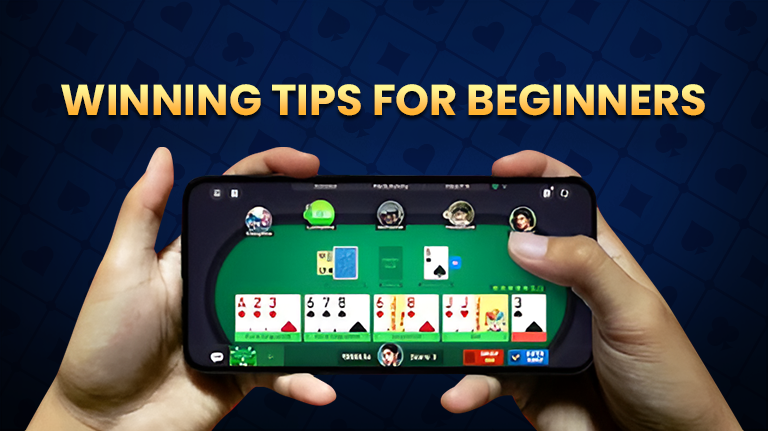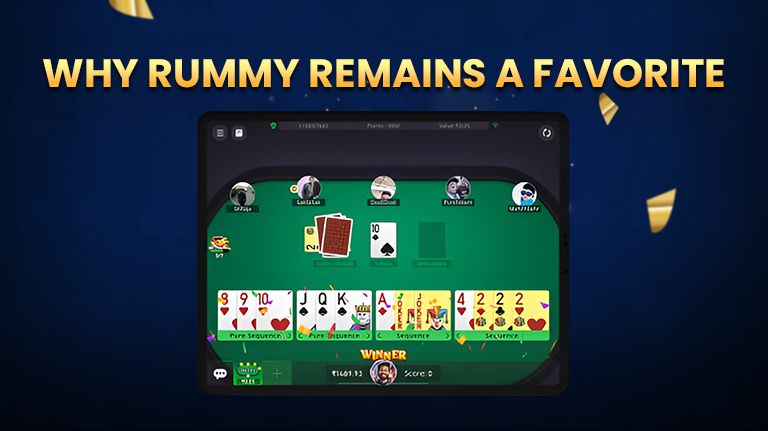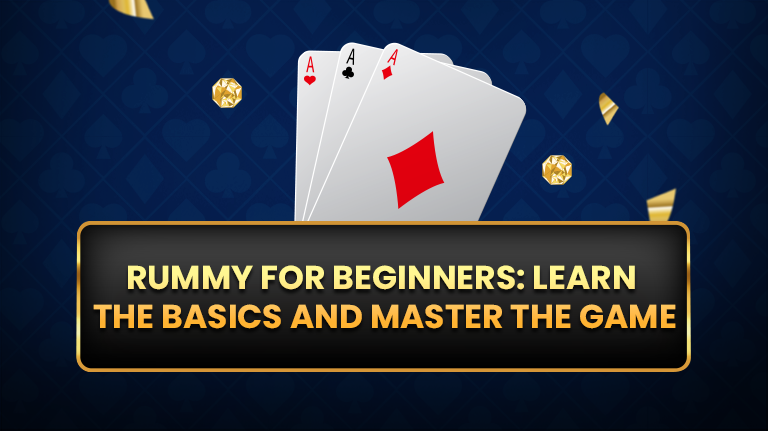Rummy is one of the most beloved card games in India, known for its blend of strategy, skill, and a touch of luck. Whether played casually among friends or competitively online, Rummy has captivated players for generations. If you’re new to the game, this beginner’s guide will help you understand the basics, learn how to play, and pick up tips to improve your game.
What is Rummy?

Rummy is a group of matching-card games where the objective is to form valid sets and sequences using the cards dealt to you. The game is usually played with 2 to 6 players using one or two decks of cards, including jokers.
The main goal in Rummy is simple:
Form valid combinations (sequences and sets) and be the first to declare.
Basic Terminologies in Rummy
Before diving into how to play, let’s understand some key terms:
- Sequence: Three or more consecutive cards of the same suit (e.g., 5♦, 6♦, 7♦).
- Pure Sequence: A sequence without using a Joker.
- Impure Sequence: A sequence that includes a Joker.
- Set: Three or four cards of the same rank but different suits (e.g., 8♣, 8♦, 8♥).
- Joker: Can be used as a substitute for any card to form an impure sequence or set.
- Meld: A valid combination of cards.
- Drop: A choice to quit a hand early and minimize point loss.
How to Play Rummy

1. Dealing Cards
Each player is dealt 13 cards. A random card is selected as the wild joker, and one or two printed jokers are also used.
2. Drawing and Discarding
Players take turns picking one card from the closed deck (face-down) or the open deck (discard pile) and discarding one card to maintain a hand of 13 cards.
3. Forming Valid Combinations
To declare and win:
- You must have at least two sequences, one of which must be a pure sequence.
- The remaining cards can be sequences or sets.
4. Declaring
Once a player has formed the required combinations, they can make a valid declaration. If the hand is valid, the player wins, and others are given points based on ungrouped cards.
Rummy Variants
There are several popular versions of Rummy played in India:
- Points Rummy: Fast-paced, one-round game with points having a fixed rupee value.
- Deals Rummy: Played for a fixed number of deals; the player with the highest chips at the end wins.
- Pool Rummy: Players are eliminated as they reach a maximum point limit (101 or 201).
Winning Tips for Beginners

- Always Aim for a Pure Sequence First
Without it, your hand is invalid, no matter what else you form. - Use Jokers Wisely
Don’t waste jokers on pure sequences—save them for difficult combinations. - Watch Opponents’ Moves
Pay attention to what others pick and discard—it can reveal their strategy. - Discard High-Value Cards Early
If they’re not forming combinations, get rid of cards like King, Queen, and Ace to avoid heavy losses. - Practice Makes Perfect
The more you play, the better you’ll get at identifying patterns and forming quick combinations.
Why Rummy Remains a Favorite

Rummy isn’t just a game—it’s a mental workout. It sharpens your memory, improves concentration, and tests your decision-making skills under pressure. Whether played offline during festivals or online on apps and websites, Rummy brings people together while keeping the brain engaged.
Final Thoughts
Rummy is easy to learn but takes time to master. With the right strategies and regular practice, anyone can become a skilled player. Start by understanding the rules, focus on forming your pure sequence, and stay alert to every move at the table.
So the next time you sit down to play, do it with confidence. Who knows? You might just become the Rummy champion among your friends!
